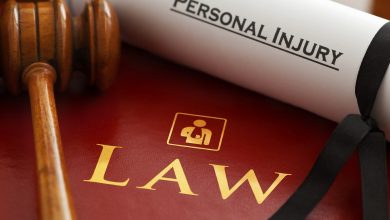Your Search and Seizure Rights

You’ll be glad to know that, in most circumstances, law enforcement cannot just show up to your house, pull you over, or stop you on the street and search you. This is an important right afforded to you by the Fourth Amendment. This dictates when, how, where, and why you can be searched, as well as gives requirements in order for a search to be performed legally. However, there are times that the safety of police and others has be prioritized, and it may dictate a shortcut through these steps – but these are only in circumstances that are also clearly, legally defined. It’s important to be aware of your rights within these situations, as well as what you can do if those rights are violated.
The Fourth Amendment
This major amendment actually covers a few things – not just search and seizure rights. It is:
The right of the people to be secure in their persons, houses, papers, and effects, against unreasonable searches and seizures, shall not be violated, and no warrants shall issue, but upon probable cause, supported by oath or affirmation, and particularly describing the place to be searched, and the persons or things to be seized.
To break that down, it requires a warrant – a document from a qualified legal official instructing them to carry something out – in order to arrest you, search your property, or to take your property, unless they have something called probable cause.
There’s a few things in there that can be further defined as well. When it comes to search and seizure, this means that if an officer wants to search your person, vehicle, even a computer, your digital history, or any other of your property, they must have your consent or a warrant. This warrant must include what the officer has permission to search specifically, as well as what they expect to find. If an officer searches you without these things, all evidence they find against you can be ruled invalid, under the exclusionary rule. However, there are certain circumstances under which you can be searched without a warrant – when an officer has probable cause. The details of this is all important to know so that you can ensure your search and seizure rights are always being warranted to you, and know what to do when they’re violated.

All About Warrants
So in order to search, an officer must have a warrant. That warrant can’t be given for any reason though. It requires an affidavit, which is a signed statement, that describes what you’re supposedly in possession of and what objective proof they have that you are in possession of it. This is then taken to an unbiased judge who will determine if it’s enough to warrant a search. There are a few requirements for the judge:
- The judge must be neutral and detached, according to Coolidge v. New Hampshire.
- Illinois v. Gates holds judges to “revealing the informant’s ‘basis of knowledge’ and “providing sufficient facts to establish either the informant’s ‘veracity’ or the ‘reliability’ of the informant’s report.”
If it warrants a search, the judge signs off on it, and the police are able to come search your property. But it doesn’t give them the right to do just anything.
First of all, there will typically be an exact, or as close to exact as they can get, description of where they can look, what they’re looking for, and possibly even during what times they can conduct their search between. There are confined to these boundaries, and any step outside of them may result in all evidence found being thrown out. However, there are a few things that they’re afforded. They can:
- Seize anything found during the search, even if it isn’t what the warrant is for
- Do a reasonable sweep on the property for their safety, as well as if evidence leads them to believe there’s illegal items elsewhere on the property
- Search in areas that you don’t have a reasonable right to privacy on that property – like a trash can on the curb
- Search without a warrant under some certain, defined circumstances

When Can an Officer Search Without a Warrant?
There’s a few situations in which this is considered lawful, and they’re usually in the interest of preserving evidence or protecting the safety of the officers and the general public. However, their reasons must hold up in court, and there is often legal back and forth on the lawfulness of a search, as defendants will often use this as a reason to get their evidence thrown out. The biggest exception to this is probable cause, but they also don’t need a warrant if you give your consent.
Giving Your Consent
The police technically don’t have to inform you of your rights. However, if an officer asks to search your property, you do have the right to say no. It is important to ask the police if they have probable cause to do so before allowing them to do anything, especially if you have any reason to fear they may find something. Your denial does not give them probable cause to search, however. You are also able to give them permission to search certain things, and set boundaries on where they are able to do so, as well as revoke your consent at any point in the search – as long as it isn’t after they’ve already found something. However, most attorneys will advise you to say no when at all possible, just to play it on the safe side.
This becomes tricky in shared spaces, as in when a roommate or someone else with reasonable authority to the property allows the officer to search, even if you don’t give consent.
Probable Cause
In cases of probable cause, officers have a valid reason to suspect that there is a crime occuring or that there is something illegal in your possession, but it must be a situation in which waiting to obtain a search warrant would allow the time for the evidence to be disposed of, or you are in danger of harming people.
This also applies in the process of obtaining a warrant, as an officer must have probable cause to justify a warrant in the first place. So no matter if you’re searched with a warrant or not, there’s got to be probable cause for it to be legal.
Probable cause exists when “the affiant had reasonable grounds at the time of his affidavit . . . for the belief that the law was being violated on the premises to be searched; and if the apparent facts set out in the affidavit are such that a reasonably discreet and prudent man would be led to believe that there was a commission of the offense charged,” according to Dumbra v. United States.
Plain View Doctrine
As it sounds, if there is any illegal property out in the open, officers may seize it and use it for evidence, as well as use it for probable cause to search the rest of the property. This can happen for traffic stops, pat downs, when you let the police into your home with your consent, or any other time you’ve got something illegal visibly in your possession in front of police.
This is also what allows police to take any other illegal property they may find while in the search of a specific item. In pat downs, this also refers to a “plain feel,” in which they feel something on your person that feels like a weapon or something else illegal. Additionally, there is a sort of “plain smell,” where if there’s an obvious marijuana odor emitting from yourself, your car, or your home, they have the right to conduct a search; however, this is only true in the states where marijuana is still illegal. In the legal states, this practice is heavily being done away with. Courts have even suppressed evidence because the officer smelled marijuana and considered that probable cause, but the front seat passenger had a medical marijuana card.
Emergency Exception
When an emergency is obviously occuring and needs the immediate assistance of an officer, they are allowed to enter without a search warrant. For example, if law enforcement hears gun shots, they have a good suspicion that a crime is occuring, and they can enter the premises. If there are drugs on the coffee table in the room, the cops can seize this and charge you with drug possession.
This doesn’t only occur in the specific sense of an emergency, as it’s also referred to as the extingent circumstance, meaning that there’s something going on that needs to be acted upon immediately. This justifies an immediate search because there is a risk of someone being harmed or evidence being destroyed. Basically, if a warrant would cause the police to not be able to find anything when they come back, or if they need to protect the safety of others, they can search and seize without a warrant.
Automobile Exception
While even for an automobile there must be a search warrant or one of these other exceptions, it’s more likely for a search to be conducted on an automobile because it is mobile and thus able to easily remove evidence. This can even happen if you’re pulled over for some other driving infraction, and you have contraband out in the open. Also, mobile homes are a little iffy here. Because they can technically drive away just like a car, they are often ruled to be applicable to the automobile exception.
Incidental Searches
These searches can occur when you are arrested, and there is evidence obviously connected to the crime that could be gotten rid of in the time it would take to get a search warrant. This must take place immediately after the arrest, however.

What if My Rights are Violated?
The biggest justice you can get from having your Fourth Amendment rights violated is having any evidence found deemed invalid in court, according to Mapp v. Ohio. In addition, dubbed the “fruit of the poisonous tree,” all evidence found as a result of this illegal evidence is all unusable in court. This is called the exclusionary rule, and it allows for illegal searches to not be able to come up with legal evidence. Therefore, if your charges were based around this evidence, you may walk away without a conviction.
There are exceptions to this when the evidence may be found valid to use in court:
- Good Faith Exception: This is when an officer truly believed he was acting on a valid warrant, from Arizona v. Evans.
- Inevitable Discovery Doctrine: As stated in Nix v. Williams, if an investigation would have led to the finding of the evidence anyways, the evidence or information obtained is still admissible in court.
- Independent Source Doctrine: If they later find the evidence in a legal search performed after that one, they can use that evidence in court, given by Murray v. United States.
If there’s ever a case where you believe these rights have been violated, contact your attorney and explain the situation. They can legally advise you on whether they think you have a case, and then fight to have the evidence withheld if possible. The officer will have to then testify in court on their reason for searching without a warrant, where a judge will decide the validity.
Unfortunately, this may be your only option for justice in this case, as police officers have something called qualified immunity. This gives them protection from any civil lawsuits, as long as no reasonable police officer would view their actions as legal. This measure of reasonableness is established in Graham v. Connor in 1989. Graham was a diabetic, and after rushing from a busy store to find orange juice for his insulin, a police officer followed him and held him until he found out what had happened at the store – which was nothing. Graham left with several injuries, as his condition was left untreated despite his attempts to explain the situation. The Supreme Court held that, “The ‘reasonableness’ of a particular use of force must be judged from the perspective of a reasonable officer on the scene, rather than with the 20/20 vision of hindsight, and its calculus must embody an allowance for the fact that police officers are often forced to make split-second decisions about the amount of force necessary in a particular situation.”
“As in other Fourth Amendment contexts, however, the ‘reasonableness’ inquiry in an excessive force case is an objective one: the question is whether the officers’ actions are ‘objectively reasonable’ in light of the facts and circumstances confronting them, without regard to their underlying intent or motivation…An officer’s evil intentions will not make a Fourth Amendment violation out of an objectively reasonable use of force; nor will an officer’s good intentions make an objectively unreasonable use of force constitutional.”
Then, in Saucier v. Katz, it was determined that if an officer did reach this unreasonable standard, then they are not able to claim qualified immunity.
After all of the exceptions to the law, as well as the flexible term that probable cause truly is, if an officer has some suspicion to search you, chances are, the law will be in their favor. The judicial system places quite a bit of trust in law enforcement in these cases, assuming that the officers are properly trained and use their instincts on the job, allowing them to make crucial decisions to maintain the law and the safety of the public. Additionally, in today’s day of technology, it is much easier to obtain warrants from judges at any time, within in minutes, as they can send warrants electronically when needed. Overall, search warrants aren’t completely out of the question when you’re interacting with police if there’s any reason to believe you may be guilty of a crime.

When it comes to being searched and having your property seized, your Fourth Amendment rights go a long way. You must either explicitly give your consent, be served a warrant giving the officer permission to search your belongings, or in a case where they have to act quickly. However, there are some explicit exceptions in which this warrant can be bypassed, as long as the officer has probable cause to suspect you may have contraband or committing a crime in some way. This is in place to preserve evidence and ensure the safety of those around you. In the case that these rights have been violated, you may be able to have all evidence obtained through the search ruled inadmissable in court. This may just work to your advantage and result in no conviction, or perhaps a lesser charge. Yet the court tends to take the side of the police officer, as long as there isn’t another officer at the scene that saw the situation differently, and that the offending officer was acting unreasonably. Either way, it’s essential to know your rights when you’re pulled over, police come to your house, they want to search your digital information, or you’re patted down.



